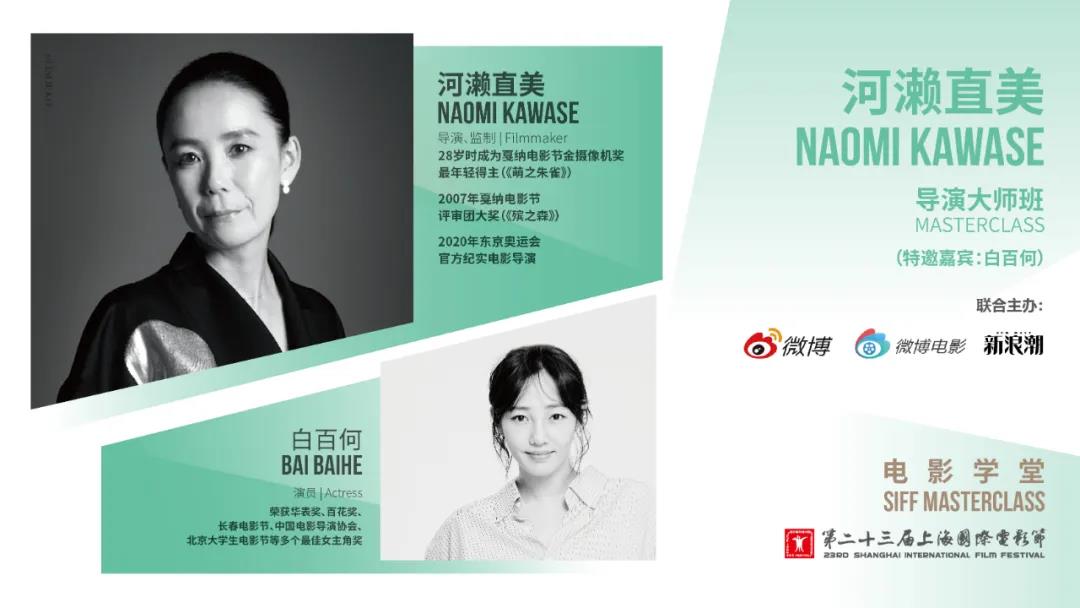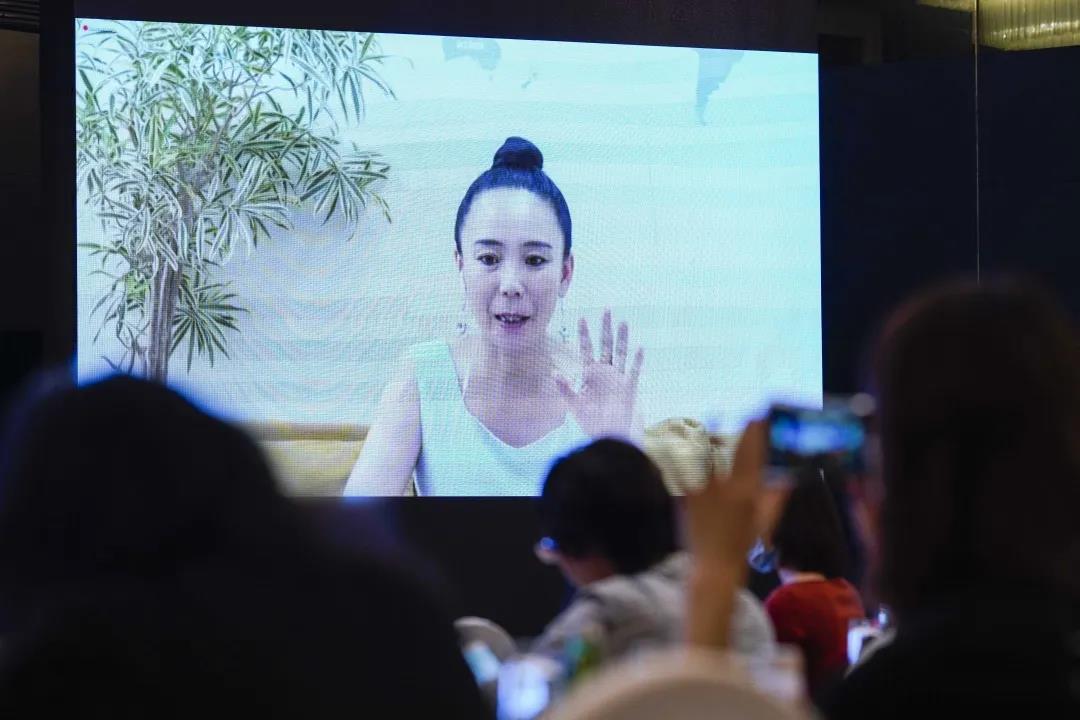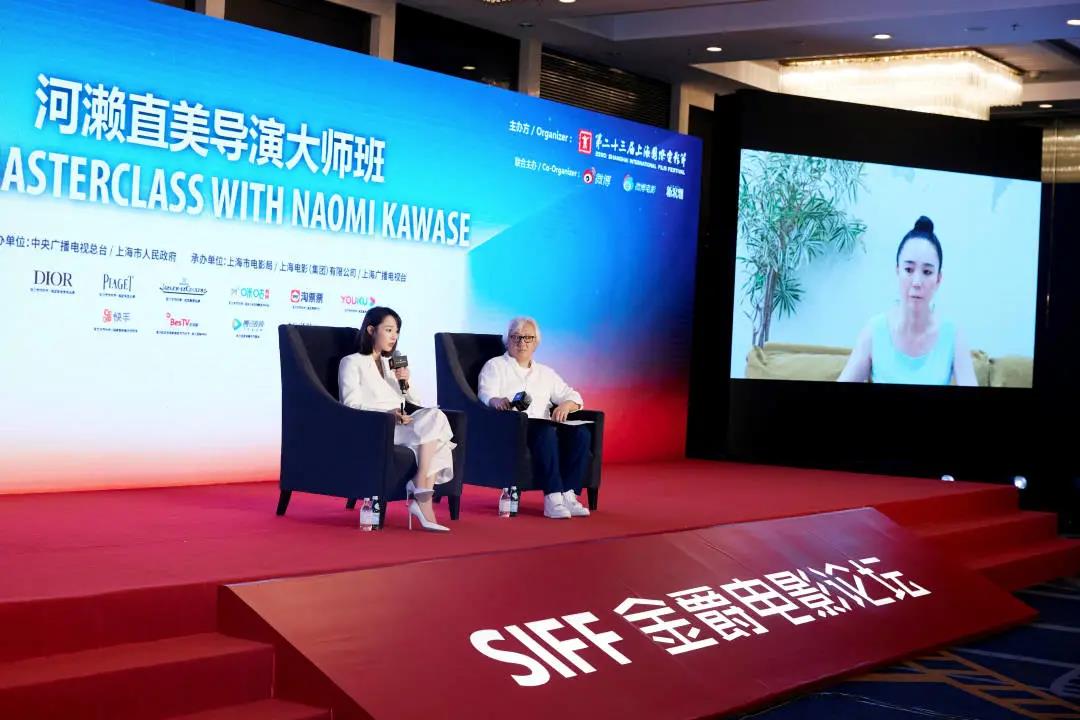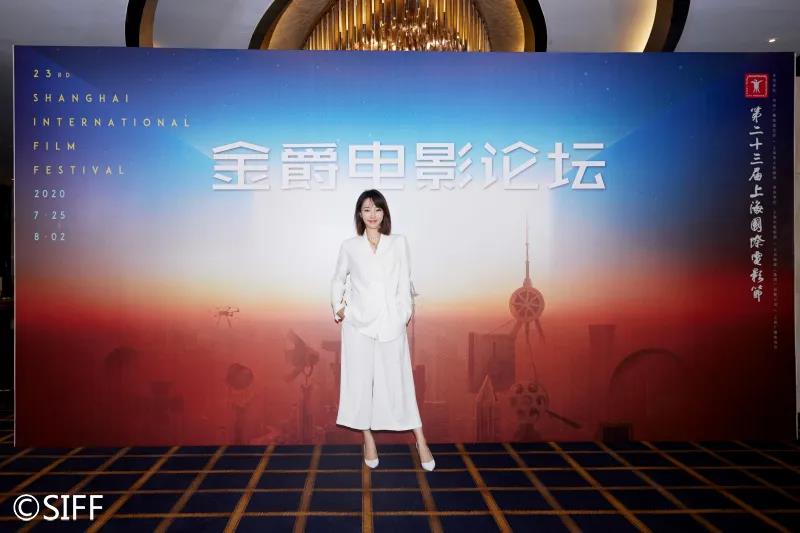2020-07-29
MASTER CLASS | Naomi Kawase: Reality and Unknown
In today\'s MASTER CLASS for the 23rd Shanghai International Festival (SIFF), Naomi Kawase, a famous Japanese director, scriptwriter and executive producer, was invited to deliver a keynote speech online. Bai Baihe, a Chinese actress, was interacting with Naomi Kawase as the special guest.
Naomi Kawase was born in 1969 in Nara, a historic city in Japan. She started her career as a documentary filmmaker. In 1997, she directed her first feature film Moe No Suzaku, which won the Golden Camera Award at the 50th Cannes Film Festival and she became the youngest winner of the award. She has been a regular visitor to the Cannes Film Festival ever since. In 2007, her film, the Mourning Forest, won the Grand Prix in Competition of the 60th Cannes Film Festival. Naomi Kawase has been appointed director of the official documentary film for the Tokyo 2020 Olympic Games.
In 2018, Naomi Kawase was scheduled to participate in the 21st Shanghai International Film Festival in competition as a judge, but was finally absent due to medical reasons.
In 2020, Naomi Kawase resumed her predestined relationship with the SIFF: Seeing Nara Again, an official selection of the 23rd Golden Goblet Award, is written and directed by Peng Fei, and produced by Naomi Kawase and Jia Zhangke, two famous film masters; on July 28, Naomi Kawase finally met the Shanghai audience in the form of wired master class.
Pursuit of truth and the unknown in feature films
After graduation from the Osaka Academy of Photography (now known as the Visual Arts College Osaka), Naomi Kawase chose to start her career in documentary filmmaking because she was reluctant to make a scripted drama with a known ending. Such experience of making documentaries had, to a large extent, influenced her later creation of feature films.
In 1997, Naomi Kawase made her feature film debut, Moe No Suzaku, showing her extraordinary talents. The biggest factor in the film\'s success, she says, is "the introduction of documentary features". "Rehearsing with scripts and regular performances, and everything was planned, that doesn\'t satisfy me. What I want is the scenario of not knowing what will come across at the next corner of crossroads. Such filmmaking process where no one knows the ending, will move me even more, and bring me a greater joy of creation. Therefore, I introduced documentary creation techniques into the feature film. When making this film, I chose the village in Nara, my hometown, where the actors and crew in their 20s lived a communal life for a total of two months.”
This quest for truth and the unknown permeates all her feature films. It is precisely because documentary creators focus more on the representation of reality that they often have special points of view, Naomi Kawase points out. “When shooting the feature films, I also introduced the sense of reality in the documentary, and also in the pursuit of a true attitude. For example, in a feature film, the acting skills of the actors can sure be trained; however, their humanity must always be reflected in the performance no matter what the director demands or how the acting skills are shown. Therefore, the actors\' personal cultivation and personality will also be a relatively large proportion in the plots and the performance. That\'s what I expect from the actors when I\'m working.”
Naomi Kawase emphasizes more than once the vitality of actors, and that performance comes from the sensibility and vitality of life, "In my films, half of the scenes that impress the audience are the results of improvisation by actors. If you put your lines in the first place, the actors may not devote themselves here, then it is hard to move the audience." In order to make actors perform better, all my films are shot in the order of scenes, totally following the scripts. In this way, all the actors don\'t have to jump in terms of their feelings and emotional changes in the play.
I never rehearsed on the set. When I was filming, only the cameraman was left on the set; even the director hid himself, leaving the best environment for the actors.
Nara is the eternal Muse
Nara is where Naomi Kawase was born and brought up, and many of her films were shot here. Nara is not only the scene, but also the theme and even the protagonist. As Japan\'s ancient capital with the earliest exposure to ancient Chinese culture, Nara has been the capital for 84 years only, which makes it no longer evolve with history, but a "time capsule": "Although the people of 1,300 years ago are no longer there, I can still feel their breath of that era."
It was Nara that turned Naomi Kawase into a director adept at telling stories visually, able to capture the fascinating light and project the natural light inside her characters, "I loved light when I was studying techniques at school, and before picking up the camera for filmmaking, I saw a lot of light, which was so beautiful and touching. Growing up in Nara, I could often find the beauty of the sky, the beauty of green, the beauty of light leaping upon the leaves, and the beauty of casting shadows. It\'s something I loved very much, and I\'d determined to project it into my own art space after I made the films. With such desire and intention, I shot a lot of very beautiful light."
It was her love of hometown and movies that spurred Naomi Kawase to initiate the Nara International Film Festival in 2000. What makes this Festival special is that it is more a window to invite those from all over the world to discover and film Nara than a stage to show and evaluate films. To this end, the Nara International Film Festival has set up a mechanism of new filmmaker cultivation, in which Naomi Kawase herself will serve as the film producer for the award-winning director, and the new film will present at the next Nara International Film Festival. It\'s also the biggest advantage for a director to run a film festival, according to Naomi Kawase.
Beauty and strength of a female filmmaker
Bai Baihe, the special guest, is also a fan of Naomi Kawase. In the interactive section, she paid most attention to Naomi Kawase\'s views on female topics and women\'s rights and interests in the moviedom. Naomi Kawase admitted that female filmmakers were still a minority in the film business, but she didn\'t want to stand out for her gender. Yet the beauty and strength of being a woman permeates the pages of her work. Bai said that as an actress, she was more attracted to the screenplays that were telling stories from a woman\'s perspective. She saw the director\'s obsession with the themes of childbirth, motherhood and parenting in Naomi Kawase\'s Tarachime (2006) and new film Asa ga Kuru. "It is possible that a person\'s personality and the charm of human nature may be enhanced in the process of having children," said Naomi Kawase, "Women have no control over their life and death in the course of childbirth, just as we have no complete control over the direction of our lives."
Quarantine let me touch & perceive the world more
Some time ago, Naomi Kawase was invited by Netflix to shoot a short film on the theme of "Epidemic Prevention and Quarantine". In her short film, Last Message, we saw the typical moment that stretches across more than two decades of her films: a hand stretching out and touching the window. Naomi Kawase explained, "What\'s on the other side of the screen? It\'s hard to touch and perceive in the current scenes. My subconscious mind is to touch and perceive the world on the other side of the screen with my hand." Tracing the Mother-in-law Trilogy until her creation during the outbreak of COVID-19, Naomi Kawase\'s shots often feature mirror images of doors and windows, the things that divide the world. “Just as with COVID-19, we are isolating ourselves from and also engaging with the world. Even today I still want to reach out and perceive, to learn about the world’s past. I\'m creating this sense."
Naomi Kawase is the director of the official documentary film for the Tokyo 2020 Olympic Games. When the Olympics was interrupted by the outbreak, where will Naomi Kawase\'s creation go? "It makes me want to shoot an even grander theme of Tokyo Olympics documentary, with greater responsibilities," she said.
The event was hosted by Weibo, Weibo Film and Sina New Wave.












